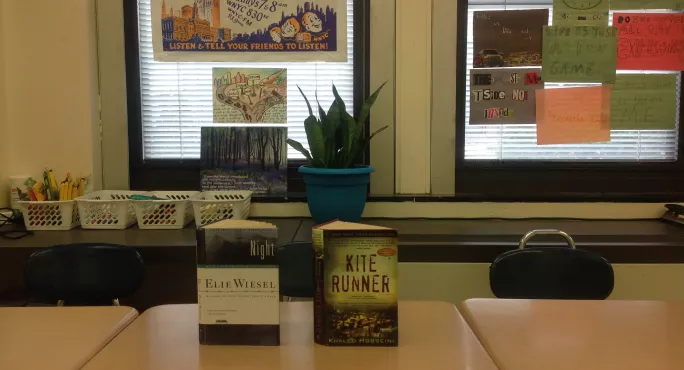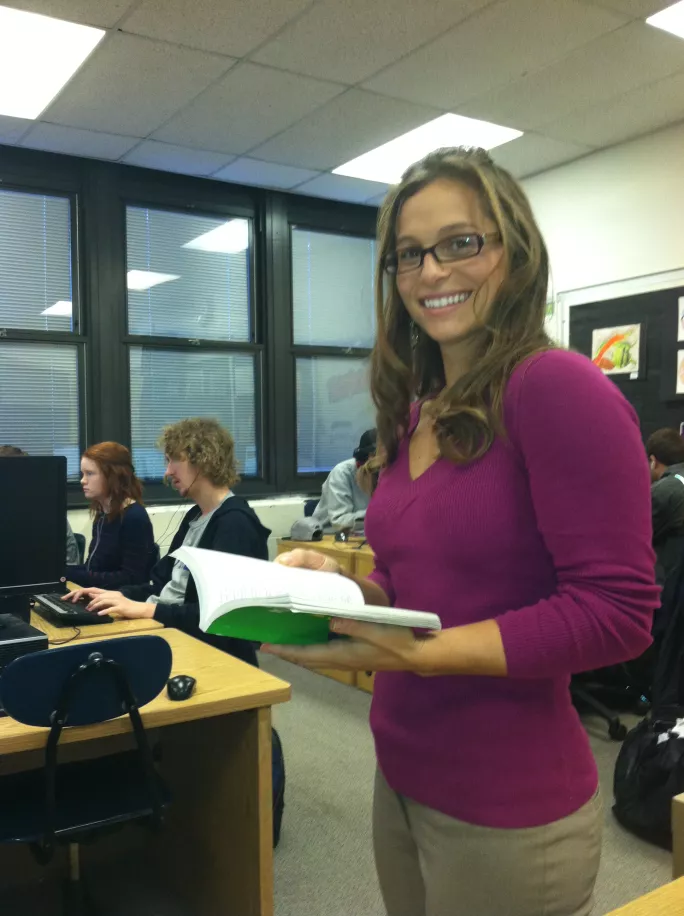The current US presidential election process is the most divisive and inflammatory that I have seen in the decade since I started teaching. The rhetoric of Donald Trump, who is currently in the lead for the Republican nomination, plays a large part in this. From his plan to build a wall the entire length of the Mexican-American border (and charging the bill to Mexico), to banning all Muslims from entering the US, Trump’s hateful and illogical rhetoric has given racism and xenophobia an outlet in the mainstream media.
My class was in the middle of reading Night, a memoir by Holocaust survivor Elie Wiesel, when Trump’s comments about what he calls “the Muslim problem” first hit news. Instantly, the danger of religious intolerance was brought into the present day in our classroom. Students connected this to The Kite Runner, another novel we had read earlier in the year, in which the protagonist comes to terms with his own identity as a Sunni Muslim. For my students, who have been exposed to a diverse range of perspectives and issues through the literature we read, the idea of a “Muslim problem” is not only nonsensical, it is dangerous.
As a rule, I normally do not discuss politics in my classroom unless it connects with the curriculum in such an obvious way as the above example states. But the political landscape in the US is shifting. The once-respected profession of teaching has been demonised by some politicians, notably presidential candidate Chris Christie, who cut contributions to teachers’ pensions. And this year’s election is plagued by racism, illogical arguments and bad behaviour.
Despite that, some politicians continue to gain in popularity because the public remains misinformed. This election year has convinced me to revise my policy on politics in the classroom. While I will remain as neutral and unbiased as possible, I now strongly believe that schools need to teach students how to “read” media. It is important now, more than ever, that the citizens of today are media literate. They should be able to read and analyse visual and digital communication and detect logical fallacies so they can better participate in democracy.
Rebecca, pictured below, is an English teacher in New Jersey. She will be writing again in four weeks’ time. Next Monday, a teacher from Jordan will be giving us the lowdown on the current teaching debates there.
Put your argument to fellow teachers on TES Community.





